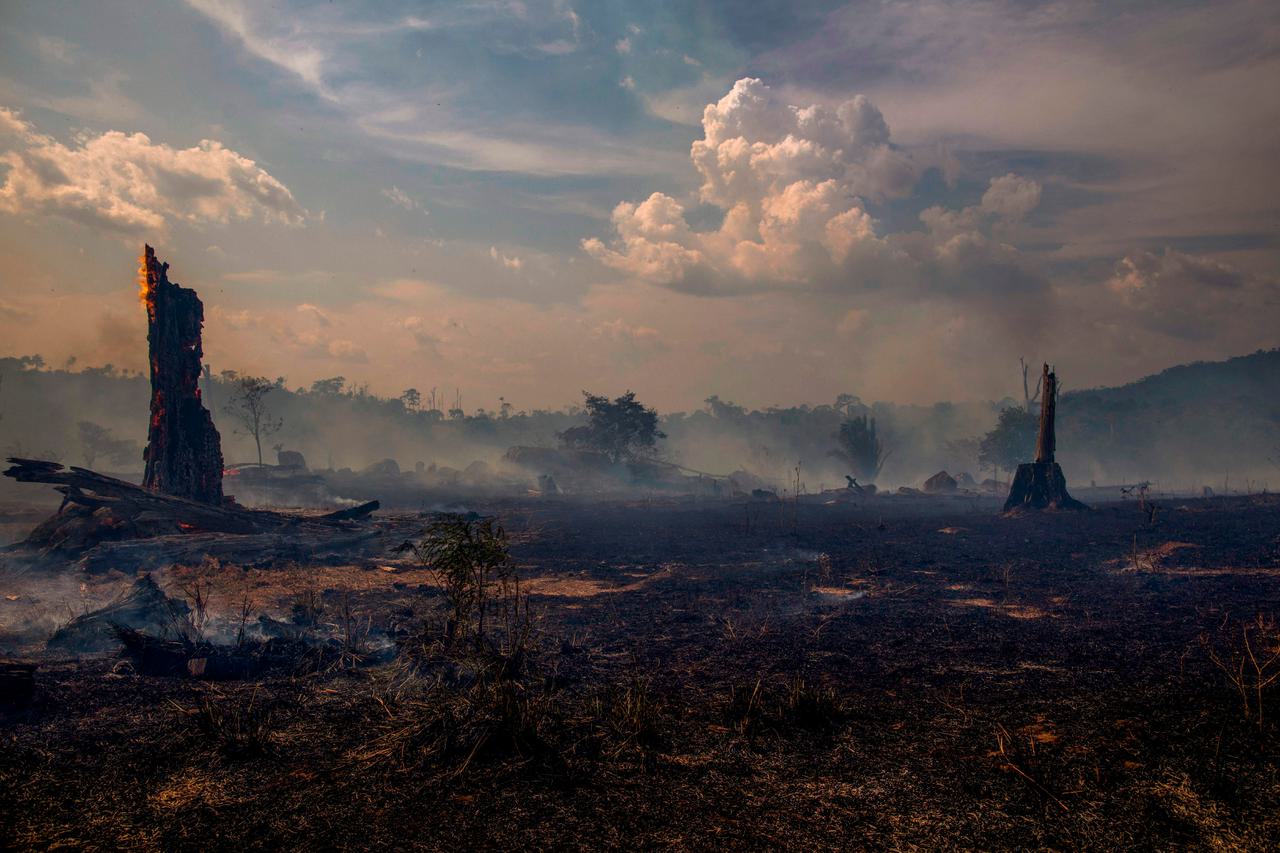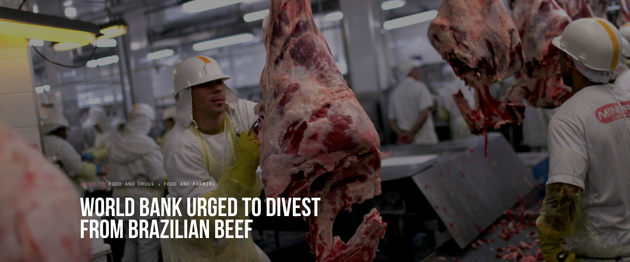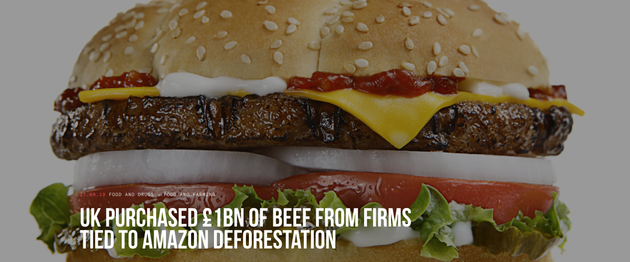
Change starts here: how collaborative journalism can help save the Amazon
Tuesday’s announcement by the government that it plans to clamp down on illegal deforestation in the supply chains of British businesses is being hailed as a welcome step in the right direction for saving the world’s rainforests – including the biggest, the Amazon.
Under the proposals, UK businesses would be prohibited from using products from illegally deforested land, and face fines if they fail to undertake due diligence by publishing information on where and how they source key commodities, such as palm oil, soy and beef.
This is major stuff. While there are concerns about how the law would be enforced and that the proposals will not go far enough, many campaigners are celebrating the fact the government is finally turning to regulation to address the UK’s contribution to global deforestation, rather than relying on voluntary commitments.
For the past year and a half we’ve been investigating – with the Guardian and Repórter Brasil – how Brazil’s mighty beef industry drives felling in the Amazon. We highlighted deforestation in the supply chain of JBS, the world’s biggest meat company, and Marfrig, another Brazilian beef giant, and we showed how the UK imports billions of pounds worth of their products. A few months ago we demonstrated how UK banks had backed these companies, and a third, Minerva, to the tune of £2bn.
Civil society groups that have been campaigning this new legislation for years said our reporting had provided them with crucial evidence and helped to build public pressure.
Just weeks ago our most recent findings – that JBS trucks had transported cattle from an illegally deforested farm to a “clean” one that then sold animals to its abattoirs – cast doubt on the company’s excuse that it cannot track the origins of all the animals in its supply chain (JBS disputed the findings). The story was picked up in more than 100 publications in 30 countries, from Brazil’s O Globo to France’s Le Figaro, thanks to our strategy to collaborate with multiple global partners and make our work available to anyone; we always want to get our findings to as wide an audience as possible.
But it’s not just other journalists who have been citing our work. This month HSBC referred to our findings in a report about JBS that sounded alarm over the company’s continuing inaction on deforestation. This followed recent news that Nordea Asset Management, which controls a €230bn fund, had dropped JBS from its portfolios due to environmental and other concerns. Both were highly significant events, especially as disapproval from investors can be a powerful and persuasive tool in pushing companies to change their behaviour. Financial institutions don’t make these decisions lightly or quickly which is why it's so important that we've kept going in our work over the past 18 months to uncover evidence and raise awareness of this threat to the Amazon.
 The Bureau has been reporting on Brazilian beef for almost two years
The Bureau has been reporting on Brazilian beef for almost two years

Last December, 50 civil society groups from around the world signed an open letter coordinated by Global Witness, drawing on the Bureau’s work, that highlighted to investors how buying shares in JBS and Marfrig could risk exposure to Amazon felling. In the week of our most recent investigation Feedback, an NGO, used our findings in meetings with JBS investors and CORE, a coalition of more than 200 NGOs, unions and individuals across the UK who are campaigning for due diligence legislation, distributed the story and promoted it within their networks.
Last month, Greenpeace launched a major campaign with a report highlighting the environmental impacts of “industrial meat” production, focussing on JBS, which supplies many UK supermarkets and fast food outlets via its network of subsidiaries. Greenpeace drew heavily on the Bureau’s 18 month investigation into the company.
These opportunities for our work to go further came about because we have been steadily building relationships with organisations and individuals working to preserve the Amazon. We speak to all sorts of people in the course of our reporting, but we also keep talking when the reporting is done, actively sharing our final stories to ensure they have the findings at the right time in the best format to be able to use them most effectively. Collaboration and coordination require effort on both sides.
Working like this, to maximise the usefulness of our work for other people, is a key pillar of how we see our journalism driving change. We’re not campaigners, but in highlighting the need for change, it doesn’t make sense to ignore the people working to solve the problems we report on. As we’ve honed our strategy, we’ve seen more and more groups and individuals use our evidence; and we’ve seen more change. This is how journalism can come off the page to make a difference in the real world.
Header image: Deforestation in the Amazon. Credit: Joao Laet/Getty Images




